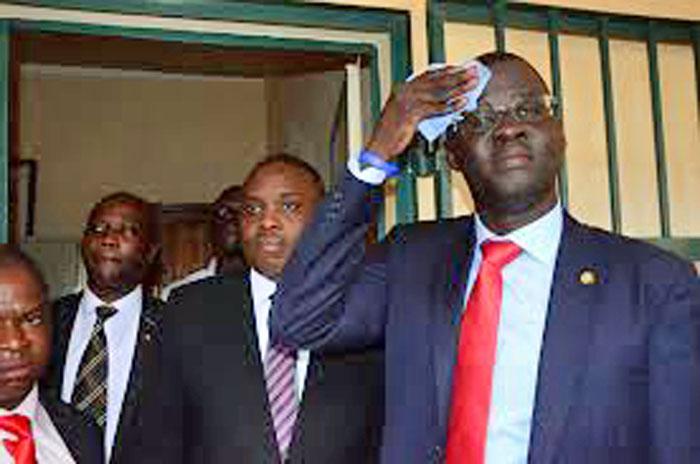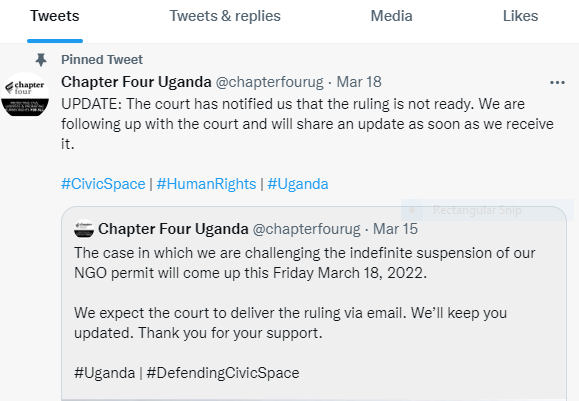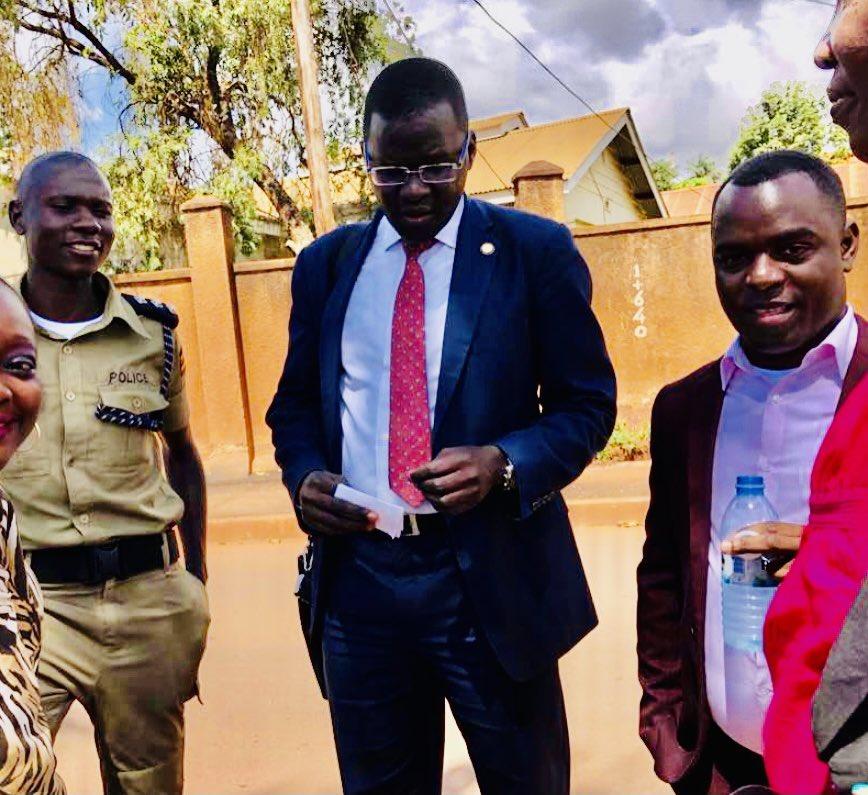High Court delays ruling on closure of Ugandan gay ally group Chapter Four
Kikonyogo Kivumbi is the executive director of the Uganda Health…
Uganda’s High Court in Kampala has postponed ruling on an application seeking to quash the government’s decision to indefinitely suspend the activities of Chapter Four Uganda, an LGBT ally and human rights organisation. The ruling had been slated for March 18, but the court has told Chapter Four that the ruling on the matter was not ready. A new date is yet to be fixed.

This ruling is to be delivered by email due to Covid-19 restrictions on gatherings, according to Chapter Four lawyers.
The case follows an August 2021 decision by the Uganda Non-Government Organisation Bureau, which ordered Chapter Four Uganda and 54 other organisations to cease operations immediately to enable the Bureau to conduct a comprehensive investigation into their operations.
Chapter Four, under the leadership of award-winning human rights lawyer Nicholas Opiyo, provides strategic and non-discriminatory legal responses to civil liberties abuses in Uganda.
Oyiyo is currently studying at Harvard University in the United States.
“We employ public interest litigation, research and legal analysis, and advocacy to advance social change for the protection of civil liberties and human rights,” according to Chapter Four official website.
The closure of Chapter Four has had a significant effect on freedom of speech and association in Uganda, as well as on the quest for Ugandan LGBT rights and tolerance. Opiyo was one of the key lawyers who defended the LGBT community in Uganda’s Constitutional Court when it annulled the infamous Anti-Homosexuality Act of 2014.
The closure of Chapter Four and other NGOs was noted in Uganda’s Universal Periodic Review at the United Nations Human Rights Council in January 2022.

Foreign Minister Jeje Odongo defended the closures to the Human Rights Council, saying they were closed for failing to follow the law on registration.
“All NGOs registered in Uganda are expected to comply with the law,” Odongo said. “All NGOs operating in the country must comply with … being in possession of a certificate of incorporation, a certificate of registration, a valid permit, and filing of annual returns of audited accounts to the NGO bureau.”
Chapter Four was accused on not filing annual tax returns in time to the Uganda Revenue Authority, the country’s tax agency.
After Chapter Four was suspended, Opiyo tweeted a receipt (receiving slip) showing that the organization had submitted its 2016, 2017, 2018 and 2019 annual tax returns on Jan. 11, 2021.
NGO Bureau Executive Director Stephen Okello says that was too late.
“Chapter Four Uganda had not been compliant with legal requirements. And the submission (of proof of filling tax returns) came after the Bureau wrote to Chapter Four in December, warning them that a suspension was in the offing,” Okello says. “That slip is actually evidence that what the Bureau is saying is correct.“
To ensure that the decision is implemented, the NGO Bureau further copied the letter to Chapter Four Uganda’s banker Absa Bank, the Financial Intelligence Authority, and the Uganda Registration Services Bureau, directing them to halt all transactions with Chapter Four Uganda.
The suspension of the NGOs is being broadly seen by human rights groups as an attempt by Uganda to close civic space and restrict freedom of assembly and association. They accuse the government of perceiving NGOs as a threat to the 36 years of President Yoweri Museveni’s rule.
Already, the chairperson of another targeted NGO, the Citizen’s Coalition for Electoral Democracy in Uganda (CCEDU), has resigned, citing her belief that her political opposition to Museveni made the organization a target.
“Rather than a whole Citizen’s Coalition with over 1,000 members and other organisations being indefinitely suspended because of my individual political thoughts, and for the good and interest of these Ugandans, it is rather prudent that I step down from the position of the chairperson of CCEDU in order to give the organisation a second chance to live,” Miria Matembe wrote in her resignation letter.
Matembe was once a cabinet minister in the Museveni government, but fell out with the regime as it continued to cling to power.





